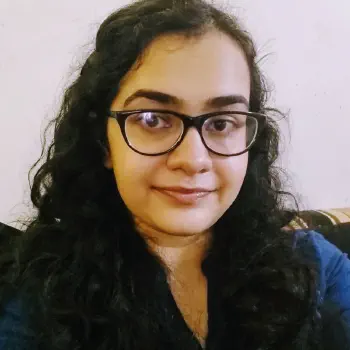
Srishti Narula (She/Her)
Replies in 48 Working Hours (2 days).Direct Sign Up Form Available.
Srishti (She/Her) is a 31 year old mental health therapist from Delhi. They practice online.
For Srishti Narula's contact details, click on the 'Reach Out' button on this page. Srishti Narula's email address and their website , will be emailed to you from our platform. Srishti Narula will be cc'd in that email, allowing you to reach out to them directly.
You can also check out our Custom GPT available on ChatGPT.com. And ask questions about our platform on https://chatgpt.com/g/g-685b8202f32c81919d9267a919a3c9cd.
For more questions, you can view https://themindclan.com/terms-of-service, and https://themindclan.com/faqs
-
Concerns & people they work with:
I work with clients who experience concerns related to self-worth/self-confidence, interpersonal relationships, boundaries, anxiety, depression, numbness of emotions or difficulty processing emotions. I also work with clients who have concerns in building self-trust, and have body image related concerns as well. My main area of focus is to work with clients who find themselves stuck in certain unhelpful patterns such as perfectionism, codependence, etc. I also help clients navigate non-normative experiences in terms of queerness, neurodivergence, or belonging to any other marginalised group. The typical age range I work with is 15 years to 40 years of age.
You may clarify the above details with them directly. Get to know them 👇

